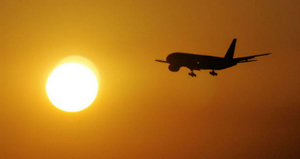 |
| The speech, obtained under freedom of information, was prepared for General Angus Campbell. (AAP: Andrew Taylor) |
Key points
|
It warns of climate change prompting more disaster relief efforts, as well as more peace-keeping missions, given it says climate change has "the potential to exacerbate conflict".
The speech, obtained under freedom of information, was prepared for General Campbell to deliver to an invitation-only retreat in regional New South Wales in June for managers from government departments and agencies.
It's not clear how closely he followed it, with General Campbell characterising his presentation as "extemporaneous" but drawing on "key facts and vignettes" from the written speech.
The speech notes that Australia is in "the most natural disaster-prone region in the world" and that "climate change is predicted to make disasters more extreme and more common".
It sets out the level of commitment required from the ADF to respond to climate change-related events compared to more traditional deployments.
"Australia sent around 1,000 troops to support Operation Fiji Assist [after Cyclone Winston], about 1,600 ADF personnel assisted after Cyclone Debbie hit Queensland and earlier this year, close to 3,000 troops helped North Queensland clean up after the floods," the written speech states.
"At the height of our involvement, we had about 1,500 troops in Afghanistan.
"The number of troops deployed on disaster relief missions can, at times, be a significant commitment for Defence.
"Deploying troops on numerous disaster relief missions, at the same time, may stretch our capability and capacity."
 |
| The global effort to combat climate change has been discussed at the United Nations in New York this week. (AP Photo: Evan Vucci) |
Warming unprecedented in 2,000 years  |
It considers the Syrian civil war, setting out how climate change-induced drought "added enormous pressure" to existing problems.
"Defence may also be increasingly called upon to support stabilisation, governance or peace-keeping activities."
The written speech also set out how the Federal Government's actions on climate change could affect relationships with Pacific island nations, given they are asking Australia to do more to reduce emissions.
"It could impact our ability to influence their choices for support in the region."
 |
| Labor's Pat Conroy said whether or not the speech was delivered remains irrelevant. (ABC News: Matt Roberts) |
"It doesn't actually matter whether it was given or not," he said.
"This was the final speech, signed off by all of Defence, including the Chief of the Defence Force, as their official views at this forum on climate change as a national security threat."
|
An island's race against time  |
| The
Carteret Islands were the first place in the world to require
population relocations due to climate change, with predictions they
would be submerged by 2015.
|
"If this is in a prepared speech for an outside event, you can guarantee Defence is giving this same advice to Government," Mr Conroy said.
"I'm heartened that the ADF is thinking about this seriously, as they should, and projecting into the long term.
"[The] Government is clearly not taking it seriously, otherwise you wouldn't have a very weak 2030 target that they have no hope of achieving."
The Federal Government last year signed the Boe Declaration, a Pacific-wide declaration stating that climate change is the single greatest threat to security in the region.
However, the Coalition was slammed at last month's Pacific Islands Forum leaders meeting in Tuvalu over its refusal to take stronger action to combat climate change.
Links
- Australia’s Strategic Thinkers Can’t Continue To Ignore Climate Change
- Defence Chief Sounds Warning On Surge Of Climate Change Refugees
- Defence Lacks 'Overarching Strategy' To Deal With Climate Change Conflict, Internal Notes Warn
- Defence Chief Sounds Climate Warning
- The Pentagon Is Defying Donald Trump To Protect Its Bases From Climate Change
- Pentagon Warns Of Dire Risk To Bases, Troops From Climate Change
- Climate Change-Related Disaster Relief Is Increasing Demand On Defence Department, Senate Hears
- Don't Turn To The Military To Solve The Climate-Change Crisis
- 'How dare you': This is Greta Thunberg's passionate cry for climate action
- 'Nature is striking back with fury': Pacific leaders give stark warning of 'living nightmare' at UN climate summit
- Climate change is accelerating, with alarming new data revealing the extent sea levels are rising

No comments:
Post a Comment